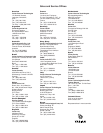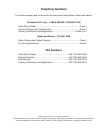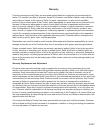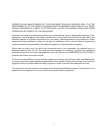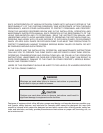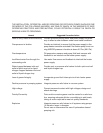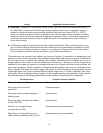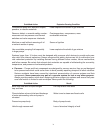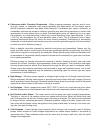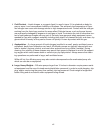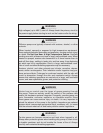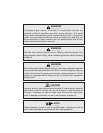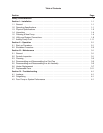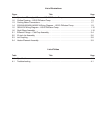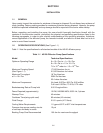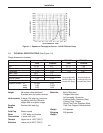
vi
d. Poisonous and/or Corrosive Compounds – When pumping poisonous, reactive, and/or corro-
sive gas, vapors, or chemicals, even proper operation and regeneration will not always ensure
that all hazardous materials have been totally removed. If hazardous gas, vapors, chemicals, or
combustible mixtures are pumped, sufficient quantities may exist during operation or remain after
regeneration to cause severe injury or death. Overheating the pump oil, exposing it to air or reac-
tive materials, or overpressurizing it above the normal operating range (approximately 1 mTorr
(.133 Pa)) will decompose the oil and possibly make it toxic. This is especially true of back-
streamed mechanical pump oils which are more volatile (unstable). Overheating of accidentally
introduced or backstreamed mechanical pump oils cannot be protected against by thermal switch-
es which are set for diffusion pump oil.
d. Refer to specific instruction manuals for detailed instructions and precautions. Always vent the
pump and relief valve to a safe location thus ensuring adequate dilution to safe levels, and take all
other action required to meet quality air standards. Always handle pump fluids and hardware with
an awareness of the possible deadly hazards involved and the necessity for great care and atten-
tion to safety precautions.
d. Diffusion pumps are typically cleaned with acetone or alcohol. Acetone, alcohol, and most other
solvents are irritants, narcotics, and depressants, and/or carcinogenic. Their inhalation and inges-
tion may produce serious effects. Even absorption through the skin can result in moderate toxicity.
Always ensure that cleaning operations are performed in large, well-ventilated rooms. Use of self-
contained breathing apparatus may be necessary depending upon the solvent type and vapor
concentration in surrounding air.
e. High Voltage – Diffusion pumps operate at voltages high enough to kill through electrical shock.
Design equipment utilizing these pumps to prevent personnel contact with high voltages. Securely
attach prominent hazard warnings. Personnel should always break the primary circuit to the power
supply when direct access to the heater or wiring is required.
f. Hot Surfaces – Boiler temperatures reach 530°F (275°C) which can cause serious burns when
touched. Always ensure that surfaces have cooled near room temperature before touching them.
g. Hot Coolant and/or Steam – The water used to cool the pump can reach scalding temperatures.
Touching or rupture of the cooling surface can cause serious burns. Water left inside quick cool
coils from previous use will turn to steam when the pump is reheated. This steam must be allowed
to escape without contacting personnel. Whenever possible, design the water system with inter-
lock valves so that power cannot be applied to the pump unless water is flowing in the main cool-
ing coils (not quick-cooling coils).
h. Cold Surfaces – Liquid nitrogen traps cooled by liquid nitrogen are commonly used in diffusion
pumps. Metal surfaces at liquid nitrogen temperature can cause severe frostbite if contacted by
unprotected skin. These surfaces remain cold for some time (at least a half hour) after the liquid
nitrogen has evaporated.



